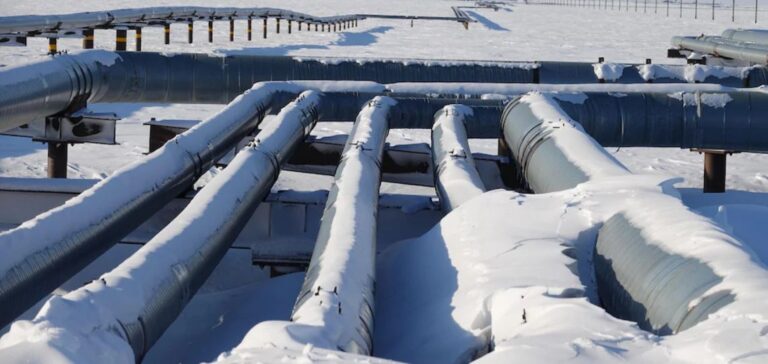President Joe Biden must soon decide whether the Willow oil project in Alaska gets U.S. government approval. This decision was taken in a context of strong pressure from environmental associations. The project, originally approved by the Trump administration, was temporarily halted in 2021 by a judge, who referred it for further government review.
The economic stakes are enormous, but Joe Biden’s decision is highly anticipated, as he had promised not to authorize new oil and gas drilling on federal lands. Symbolically, the drilling would be done in a northern Alaskan wilderness area in the Arctic, where temperatures are warming much faster than the rest of the planet, bearing the brunt of the adverse effects of human-related greenhouse gas emissions.
Massive opposition from environmental associations
Supporters of the project see it as a source of jobs, a contribution to U.S. energy independence and, for some, an inevitable step in the transition to other energy sources. However, the environmental associations are making a massive campaign to prevent the realization of the project. “If approved, the Willow project would become the largest oil extraction project on federal lands in the United States,” Greenpeace pointed out, calling it a “carbon bomb.” “We can’t afford it, as a planet,” the Earthjustice organization asserted. An online petition on Change.org has gathered more than three million signatures. A wave of videos opposing the project also broke on the social network TikTok. The hashtag #StopWillow had more than 150 million views as of midday Thursday.
Project Reduction and Environmental Concerns
In early February, the Bureau of Land Management released its environmental analysis, in which it detailed a “preferred alternative.” The latter would reduce the project to three drilling sites instead of five, with approximately 219 wells. This would allow the production of 576 million barrels of oil over about 30 years, according to the office’s estimates. This would result in the emission of 9.2 million tons of CO2 per year. The U.S. agency notes that this amount represents 0.1% of U.S. greenhouse gas emissions in 2019. A fourth drill site could then be added under this scenario.
The American oil giant ConocoPhillips had “welcomed” the publication of this report and considered that the proposed alternative was “a viable path for the future development of (its) lease”.
The U.S. government has also expressed concern about greenhouse gas emissions. The economic stakes are enormous, but the environmental consequences and the Biden administration’s climate commitments must also be taken into account.
Oil proponents pressure Joe Biden
In early March, three Alaska elected officials in the U.S. Congress, including Republican Senator Lisa Murkowski, urged President Biden to approve the “Willow” project. They emphasized the economic benefits to Alaska and the energy security of the United States. However, Joe Biden has pledged to reduce U.S. greenhouse gas emissions and meet the commitments of the Paris Climate Agreement. It remains to be seen what decision will be made on this controversial project.





















